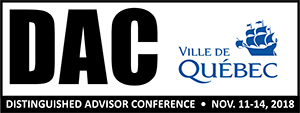RESP: A Key to Closing the Poverty Gap
Statistics show that small children who grow up with the expectation they will take higher education will reach those aspirations, and this is likely the key to breaking the poverty cycle in Canada. The Registered Education Savings Plan (RESP) can help, but governments and the private sector need to do more coaching with parents, because educational aspirations begin with them.
Encouraging educational aspirations in young people starts with the habits of parents. Parents who open a Registered Education Savings Plan (RESP) develop more excitement about their children’s prospects for the future. The Canada Learning Bond (CLB) offers similar hope to low-income families according to Pierre Labbée, Manager, Strategic Integration, Employment and Social Development Canada. Labbée will be speaking at next month’s Distinguished Advisor Conference on this important subject.
“We do know that those who have money in RESP accounts contribute on par with higher-income families; that is, they have savings of $1000-1200 a year. International insights also tell us that children with savings are 6 percent more likely to graduate and attend post-secondary school. Aspirations and expectations are created and they tend to come true,” says Pierre.
likely to graduate and attend post-secondary school. Aspirations and expectations are created and they tend to come true,” says Pierre.
In order to encourage educational aspirations in young people, expectations can be set by parents who focus on their own educational pursuits and act as an example for their children. Modelling this behaviour is especially important in light of a U.K. report that shows that children are 7.5 times less likely to be well-educated if their father was not.
According to Pierre, this finding is of utmost importance for a few major reasons: “Education is the key to access to better jobs, benefits, education and entry into the middle class as a whole…thereby breaking the poverty cycle.”
The positive news is that Canadian parents seem to be quite conscientious about their children’s futures. Made clear by the 50 percent of Canada’s 7 million children reported* to have RESP accounts that contain contributions. The downside is that the uptake on the Canada Learning Bond is low. Of an estimated 1.8 million kids eligible for the CLB, only about 35 percent are taking advantage.
For 2018, the low-income eligibility threshold for the CLB was set at $45,916 (primary caregiver income level) for families with one to three children. The income threshold is adjusted based on the number of children, ranging to $63,640 for households with six children.
Why aren’t families using the CLB program more, as well as others that provide opportunities for education and other ways to break the cycle of poverty? One problem is that many low-income families don’t file tax returns, and this is something that many government income redistribution programs and savings incentives require. To take advantage, Canadians must have a Social Insurance Number (SIN) and tax filing abilities. Those who don’t miss out on up to 36 different assistance programs.
Financial isolation isn’t unusual for low-income families, who sometimes lack financial literacy or are reticent to deal with their financial matters through financial institutions; some simply lack physical access based on distance to required resources. It is, therefore, important that tax and financial advisors work in partnership with the government to bring opportunities to the community for the betterment of all Canadians. The societal dividends paid are absolutely accretive.
*Reported on the Statistics Canada 2016 CESP Annual Statistical Review
Check out these other fascinating and informative sessions to be featured at this year’s DAC, which we’ve profiled previously:
Sign up online for the unique networking experiences and activities also offered at DAC.
Additional educational resources:
Get the knowledge you need to educate low-income clients on tax incentives, basic filing requirements and access, and other assistance programs that will help them plan financially for their children’s futures: become a certified DFA – Tax Services Specialist.
Attending the CE Summits - the most important CE event of the year - can also help with tax-efficient planning and strategies.
COPYRIGHT OWNED BY KNOWLEDGE BUREAU INC., 2018.
UNAUTHORIZED REPRODUCTION, IN WHOLE OR IN PART, IS PROHIBITED.
 |
 |
 |
 |
|
Refer a Friend |
Research |
Calculators |
Course Trials |
 |
 |
 |
 |